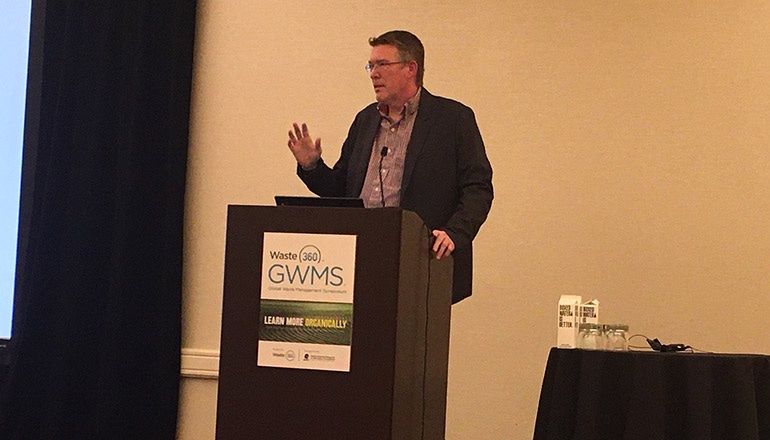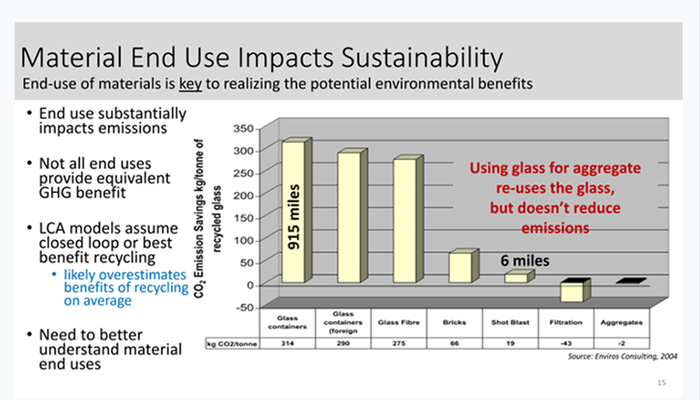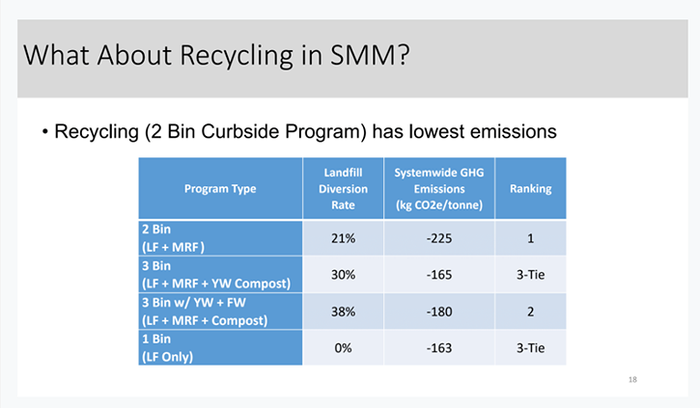EREF’s Staley breaks down how LCA can help determine when recycling makes sense versus when it makes more sense to landfill materials.

When it comes to the sustainability of recyclable materials, lifecycle assessment (LCA) is a framework for examining, identifying and evaluating the energy, material and environmental implications of a process, product or system across its lifespan from cradle to grave.
During a Global Waste Management Symposium (GWMS) session on sustainable materials management, Bryan Staley, president and CEO of the Environmental Research & Education Foundation (EREF), explained that LCA can help determine why people recycle, when recycling makes sense versus when it makes more sense to landfill and whether, in some cases, recycling can be worse than landfilling.
In addition to its benefits, recycling can have significant environmental costs when it comes to collecting, processing and transporting recyclables to end users. Recycling only makes sense from an LCA perspective when the benefits outweigh the costs, Staley pointed out.

“Now, one of the things that LCA models assume would be closed loop recycling, and that is a detriment to the LCA model right now,” said Staley. “There is simply not any data. If we had more data on end use, energy consumption and greenhouse gas emissions, it would allow us to better quantify from an LCA standpoint which of these scenarios make the most sense.”
Right now, he said, the public conversation around recycling is borderline “bipolar.”
“In the waste industry, I feel like we have a very nuanced conversation about the limitations of recycling, but when you get outside in the public eye, it becomes, ‘Why can’t everything be recycled? What the hell is going on with the waste industry? Why can’t you guys figure out how to use this stuff?’” noted Staley.
“There is a big conversation out there about how manufacturers make products that have higher end value that the waste industry can manage. If that were the case, it would create some significant advantages in terms of emissions reductions, energy savings and so on,” he added.
But what about recycling in a sustainable materials management (SMM) framework?

SMM is an approach to managing waste as a resource; it shifts the way one thinks about waste—looking at things from a circular economy standpoint. SMM looks at materials from both a broader perspective and a systems perspective, noted Staley.
In its research, EREF found that the lowest emissions were generated from a two-bin residential recycling scenario. EREF also looked at other collection scenarios, such as a three-bin system, with yard waste and compost all in the third bin.
“But, interestingly, even though you increase diversion, it doesn’t necessarily decrease emissions, and that has to do with how the materials break down in a landfill if they’re landfilled or when they’re collected and composted,” explained Staley.
“If we look at this from an energy savings standpoint, there could be a correlation between diversion and energy savings. There is a distinct difference, and we can’t assume that we should make decisions off of one burden or the other; it should be taken into context with the various goals we are trying to achieve,” he added.
About the Author(s)
You May Also Like




